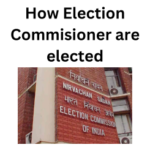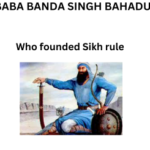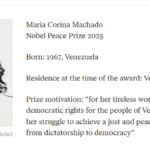The Election Commission of India announced the schedule for Lok Sabha Elections

Lok Sabha Election 2024 Schedule:
7-phase polling to begin from April 19
counting will be on June 4.
Four states, Arunachal Pradesh, Andhra Pradesh, Odisha, and Sikkim will also be holding simultaneous Assembly elections.
LEARNING FROM HOME/ WITHOUT CLASSES/ BASICS
Article 324 of the Indian Constitution grants powers to the Election Commission of India to direct and control free and fair elections in India. The powers of Superintendence have been vested in the Election Commission.
Qualifications of members of Parliament are listed in Article 84 of the Constitution, while disqualifications can be found under Article 102. Corresponding provisions for members of State Legislative Assemblies are found in Articles 173 and 191.
Article 102 of the Constitution sets grounds for disqualification of MPs whereas Article 191 sets out the same grounds for disqualification for member legislative assemblies.
VARIOUS COURT RULINGS
Union of India v. Association for Democratic Reforms
The Court in dealing with the question of criminalization of politics held that under the Indian Constitution, electors had a fundamental right to know the antecedents of candidates contesting elections to hold public office. The court read in ‘right to be informed’ as a right flowing from freedom of speech and expression.
In this case, the Election Commission was directed to secure affidavits by the candidates relating to their criminal charges, relating to past or pending, in the exercise of its powers under Article 324 of the Constitution. This included information as to whether the candidate was convicted/acquitted/discharged of any criminal offense in the past.
Additionally, if convicted, the quantum of punishment that was awarded; and whether prior to six months of the filing of nomination, the candidate was accused of an offense punishable with minimum two years of imprisonment.
Supreme Court, through its rulings also directed that the candidate should furnish all the details relating to the assets of the candidate including those of his/her spouse and the educational qualification of the candidate so that the details of the election candidate come out in the public and no one gets to stay in the dark.
Public Interest Foundation vs. UOI(2018)
The Court issued the following directions:
1. Candidates must fill up forms containing all particulars;
2. In said forms, criminal antecedents to be stated in bold;
3 Candidates must inform the concerned political party of pending; criminal cases against them
4. Concerned political party to put up such criminal antecedents of candidates on party website;
5 . Wide publicity by both candidates and parties in the press and media of the criminal antecedents. Wide publication meaning at least thrice after filing of nominations;
Lily Thomas judgment (2013); Basant Kumar Chaudhary v. Union of India, (2013)
Under this ruling members of India’s Parliament and members of state legislative bodies, convicted of a crime or in jail, became ineligible to run for elections or hold an elected seat. Prior to this judgment, Section 8(4) of the Representation of the People Act, members of Parliament who were convicted but had filed an appeal could go about their regular business, including being elected and holding seats.
“Parliament had no power to enact sub-section (4) of Section 8 of the Act and accordingly sub-section (4) of Section 8 of the Act is ultra vires the Constitution”
Corruption and criminalization of politics are hitting at the roots of democracy. Therefore, Parliament take steps urgently to curb this menace. Candidates & political parties must give wide publicity to criminal cases pending against him or her, in the local media, both print and electronic, after he or she files nomination to contest elections.
Various committees (Dinesh Goswami, Inderjeet Committee, N.N. Vohra) on the electoral reforms have recommended for state funding of elections which will curb the use of black money to a large extent and thereby will have a significant impact on limiting the criminalization of politics.






0 Comments